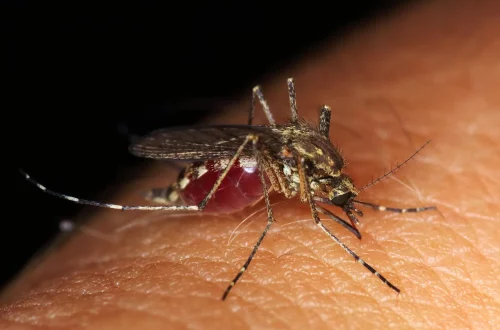-
Effective Dog Leg Wraps for Injury Prevention and Comfort
In the realm of pet care, ensuring the comfort and well-being of our furry companions is paramount. Dogs, being inherently active and playful, are prone to injuries that can affect their mobility and quality of life. As responsible pet owners, we must take proactive measures to safeguard our pets from potential harm. One effective way to do this is through the use of specialized dog leg wraps. These wraps serve multiple purposes, from providing support during recovery to preventing injuries during physical activities. The right leg wrap can not only protect against scrapes and cuts but also offer warmth and compression, which can be beneficial in various situations. Whether your…
-
The Dangers of Just One Bite: Rat Poison and Its Risks
The use of rat poison is a common method for controlling rodent populations in homes, businesses, and agricultural settings. While it may seem like a straightforward solution to a persistent problem, the dangers associated with these toxic substances extend far beyond their intended targets. The allure of a quick fix can lead to dire consequences, not just for rodents but also for pets, wildlife, and even humans. The ingredients in many rat poisons are designed to be highly effective, ensuring that a single dose is enough to achieve the desired result. However, this potency raises significant safety concerns. Many people underestimate the risks posed by rat poison, thinking that as…
-
Can Rabbits Have Cherries? Understanding Their Diet and Safety
Rabbits are beloved pets known for their gentle demeanor and playful nature. As a responsible rabbit owner, understanding their dietary needs is crucial for ensuring their health and happiness. Rabbits are herbivores, which means their diet primarily consists of plant-based foods. This includes hay, fresh vegetables, and a limited amount of fruits. However, not all fruits are safe for them to consume. One fruit that often piques curiosity among pet owners is the cherry. These small, sweet fruits are a favorite for many, but it’s essential to consider whether they are safe for your furry friend. Cherries are packed with nutrients, but they also contain certain compounds that may not…
-
Are Slugs Toxic to Dogs? What Pet Owners Should Know
Slugs are often seen as harmless garden dwellers, but for pet owners, particularly those with dogs, these slimy creatures can pose a hidden risk. While many may not think twice about their furry friends encountering slugs during walks or playtime, it is essential to understand the potential dangers associated with these mollusks. Dogs are naturally curious animals, and their tendency to explore their environment can lead them to ingest slugs or their secretions, raising concerns among pet owners. The question of whether slugs are toxic to dogs is a pertinent one. Although slugs themselves are not generally considered highly toxic, they can carry parasites and harmful substances that may jeopardize…
-
Can Dogs Get West Nile Virus and What You Need to Know
West Nile Virus is a mosquito-borne illness that primarily affects birds but can also pose a risk to humans and other animals, including dogs. With the rise in awareness about zoonotic diseases—those that can be transmitted between animals and humans—pet owners are becoming increasingly vigilant regarding the potential health risks for their furry companions. The West Nile Virus, first identified in the West Nile region of Uganda, has spread across various continents, raising concern among pet owners about its implications for their dogs. While dogs are not the primary hosts for this virus, the question of whether they can contract it and what that means for their health is critical.…
-
Can Cats Eat Walnuts? Understanding the Risks and Benefits
Cats are often considered to be curious creatures, exploring their environment and investigating various foods that humans consume. This natural curiosity can lead to questions about what is safe and beneficial for them to eat. Among the many human foods, walnuts are a popular snack, enjoyed for their rich flavor and health benefits. However, when it comes to sharing this treat with our feline friends, the question arises: can cats eat walnuts? Understanding the dietary needs of cats is crucial, as their nutritional requirements differ significantly from those of humans. Cats are obligate carnivores, which means their bodies are designed to thrive on a diet primarily composed of meat. While…
-
Can Guinea Pigs Eat Mint Safely and Enjoy Its Benefits?
Guinea pigs are charming and sociable pets that have captured the hearts of many animal lovers. Known for their gentle demeanor and vocalizations, these small rodents require a carefully balanced diet to thrive. As herbivores, guinea pigs primarily consume hay, fresh vegetables, and specially formulated pellets. However, pet owners often wonder about the safety and health benefits of introducing various herbs and plants into their furry friends’ diets. One such herb that frequently comes up in discussions is mint. Mint is a popular aromatic herb that not only enhances culinary dishes but also offers a refreshing scent. While it might seem harmless to share a few mint leaves with your…
-
How Much Diatomaceous Earth Should You Use for Dogs?
Diatomaceous earth (DE) has gained popularity among dog owners as a natural remedy for various issues, including pest control and digestive health. This fine, powdery substance is made from the fossilized remains of tiny aquatic organisms called diatoms. Rich in silica, DE is often touted for its potential benefits for both pets and their owners. As a non-toxic and environmentally friendly option, many pet parents are curious about how to effectively incorporate diatomaceous earth into their dog’s routine. However, with any new supplement or treatment, understanding the appropriate amount to use is crucial. Too much DE can lead to digestive issues or other adverse reactions in dogs, while too little…
-
How Much Diatomaceous Earth Should You Use for Dogs?
Diatomaceous earth (DE) has gained popularity among pet owners as a natural remedy for various issues, including pests and digestive health in dogs. This fine powder, derived from the fossilized remains of tiny aquatic organisms called diatoms, is rich in silica and has a range of uses. However, the question of how much diatomaceous earth to use for dogs is crucial for ensuring its effectiveness and safety. Many dog owners are intrigued by the potential benefits of DE, but they often find themselves confused about the appropriate dosage. With its increasing popularity, there is a wealth of information available, but not all of it is reliable or applicable to every…
-
Is Basil Bad for Dogs? Understanding the Risks and Benefits
Basil is a popular herb known for its aromatic flavor and culinary versatility. It is commonly used in various cuisines around the world, particularly in Mediterranean and Asian dishes. While many people enjoy basil as a delightful addition to their meals, pet owners may wonder about its impact on their furry companions, particularly dogs. The question arises: is basil safe for dogs, or does it pose any risks? Understanding the potential effects of basil on dogs is crucial for responsible pet ownership. This herb belongs to the mint family and contains various compounds that can be beneficial or harmful to animals. As pet owners, it is our responsibility to ensure…





































